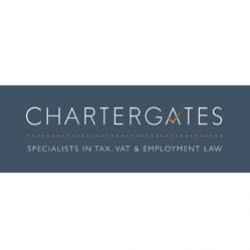Lessons from implementing IR35 reforms have been outlined, but will they be learnt by HMRC?
Following concerns about the rollout of the off-payroll rules, the Public Accounts Committee (PAC) has published a report entitled ‘Lessons from implementing IR35 reforms,’ and it’s clear just who those lessons are aimed at -- Her Majesty’s Revenue & Customs, writes Naseerah Mussa, consultant at tax, VAT and employment law firm Chartergates.
What’s unacceptable about IR35 to MPs
The PAC is highly critical of HMRC’s approach to the application of the off-payroll working rules, particularly in the public sector. A prime reason being the fact that many central government departments, including the Department of Work & Pensions (DWP), Ministry of Justice, and the Home Office, struggled to comply with the IR35 changes to the public sector, resulting in approximately £263 million in back-taxes in 2020-21, which the PAC roundly denounced as “not acceptable.”
They concluded that such mistakes and a failure to suitably consider the rules were always likely, given HMRC had given public bodies little time to prepare and acquaint themselves with HMRC’s guidance -- and tools, before the new rules were to come into effect.
Six recommendations, with some on a six-month clock
The report sets out six recommendations to HMRC, some of which require HMRC to provide an update on their progress within six months. The highlights are below.
The first recommendation is for HMRC to develop its tools and guidance. It follows the PAC’s conclusion that the department’s Check Employment Status for Tax (CEST) tool is difficult to interpret, and the HMRC guidance did not integrate into CEST itself.
CEST, Status Determination Statement and the Status Disagreement Process
Readers of ContractorUK are probably well aware that before the tool was launched in 2017, HMRC made promises about how CEST would be all singing, all dancing, and provide a pretty definitive outcome when determining employment status. However, as has been well documented in many quarters, factors such as ‘mutuality of obligations’ – a key feature of an employment relationship – is assumed to be present in every case simply by virtue of the fact that the tool is being used to all intents and purposes. Interestingly, DWP and the HM Courts & Tribunal Service used HMRC’s CEST tool to determine whether or not contractors fell inside or outside the scope of IR35 and were subsequently handed a £12.5 million and £300,000 tax bill respectively.
Another conclusion that the PAC came to is that it is too difficult for contractors to challenge status determinations. Contractors or the company holding the Status Determination Statement (SDS) can challenge the client’s conclusion via the client-led Status Disagreement Process.
Such a challenge must be made before the final payment for the contractor’s services has been made. The client has 45 days to respond to such a challenge and failure to do so will result in the client becoming liable for the IR35 duties until such time as the client responds. The PAC’s report comments on the lack of an independent appeals process to resolve disputes over status determinations if the contractor still disagrees with the decision. To the committee, HMRC provided information to suggest that in such situations, the only recourse for an individual is to follow the existing income tax self-assessment and NICs refund processes.
An independent resolver of IR35 status comes with many questions
But the PAC’s recommendation is to have an independent process for contractors to resolve disputes over the SDS. However, it raises questions as to who would be policing the process -- would it truly be independent? And would there be any legal requirement for an end-client to partake in the process – particularly, as the liability under Chapter 10 ITEPA 2003 rests with them in the first instance?
Further involvement of an end-client in such a process could lead not only to HMRC taking a closer look at the decision-making rationale, but it could also flag the business up for a wider compliance review, particularly where the process of compiling a SDS is found to be deficient.
Wait and see with HMRC
Next, the PAC’s report goes on to suggest that HMRC should proactively identify and work with businesses that have been, especially, affected by the IR35 reforms. There is reference to the broadcasting and IT sectors as having raised concerns about the difficulties they faced in implementing the changes. HMRC have had around 200 cases in the media industry under investigation, almost half of which have now been settled. It will be interesting to see whether HMRC will work proactively to address them and make it easier to comply with the new rules. The PAC has requested that HMRC provide them with an update on this point within six months.
Another significant concern of the committee is that there are serious “structural problems” with the IR35 rules, and that, even worse perhaps, HMRC have yet to address these structural problems. Situations where the end-client may not always have access to all the information necessary to assess the totality of a contractor’s work and income are cited. Such scenarios inadvertently push hirers into engaging with individuals via other means, such as umbrella companies if they deem the engagement to fall within the IR35 rules. Or not engaging with individuals at all, such as by stopping the use of PSCs altogether.
Final thought
Despite loud and ongoing calls from many commentators and numerous interested parties for the well-evidenced need for the taxman to attend to a number of the points raised by the PAC, both prior to and post-implementation of the off-payroll rules in the public and private sectors, there is one massive, key question. Will HMRC listen, and will the report have the desired effect? That’s another even bigger wait and see.



